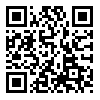1. Balaji R, Duraisamy R, Kumar MP. Complications of diabetes mellitus: A review. Drug Invent Today. 2019;12(1):98-103. [
Link]
2. Al-Eqabi QAK, Niazy SM, Radhi MM. Effectiveness of digital health interventions in managing glycated hemoglobin: A randomized management led trial. Natl J Community Med. 2024;15(9):747-53. [
Link]
3. Radhi MM. Degree of disease acceptance and health-seeking behaviors for type 2 diabetic patients at diabetic center in Hilla City. Medico Leg Update. 2020;20(2):853-8. [
Link] [
DOI:10.37506/mlu.v20i2.1347]
4. Radhi MM, Zair Balat K. Health literacy and its association with medication adherence in patients with hypertension: A mediating role of social support. Iran Rehabil J. 2024;22(1):117-28. [
Link] [
DOI:10.32598/irj.22.1.1989.1]
5. Azharuddin M, Adil M, Sharma M, Gyawali B. A systematic review and meta‐analysis of non‐adherence to anti‐diabetic medication: Evidence from low‐and middle‐income countries. Int J Clin Pract. 2021;75(11):e14717. [
Link] [
DOI:10.1111/ijcp.14717]
6. Radhi MM, Niazy SM, Abed SN. Individual-related factors associated with treatment adherence among hypertensive patients. J Public Health Afr. 2023;14(6):2466. [
Link] [
DOI:10.4081/jphia.2023.2466]
7. Khazew HR, Faraj RK. Illness acceptance and its relationship to health-behaviors among patients with type 2 diabetes: A mediating role of self-hardiness. Curr Probl Cardiol. 2024;49(8):102606. [
Link] [
DOI:10.1016/j.cpcardiol.2024.102606]
8. Qassim WJ, Yasir AA, Radhi MM. Assessment of self hardness and its relationship to treatment acceptance for patients with diabetes mellitus at diabetic center in Hilla City/Iraq. J Pharm Sci Res. 2018;10(1):142-5. [
Link]
9. Husdal R, Thors Adolfsson E, Leksell J, Nordgren L. Diabetes care provided by national standards can improve patients' self‐management skills: A qualitative study of how people with type 2 diabetes perceive primary diabetes care. Health Expect. 2021;24(3):1000-8. [
Link] [
DOI:10.1111/hex.13247]
10. Huang YM, Shiyanbola OO, Chan HY. A path model linking health literacy, medication self-efficacy, medication adherence, and glycemic management. Patient Educ Couns. 2018;101(11):1906-13. [
Link] [
DOI:10.1016/j.pec.2018.06.010]
11. Bandura A. Social foundations of thought and action. Englewood Cliffs: Prentice Hall; 1986. [
Link]
12. Xie Z, Liu K, Or C, Chen J, Yan M, Wang H. An examination of the socio-demographic correlates of patient adherence to self-management behaviors and the mediating roles of health attitudes and self-efficacy among patients with coexisting type 2 diabetes and hypertension. BMC Public Health. 2020;20(1):1227. [
Link] [
DOI:10.1186/s12889-020-09274-4]
13. Radhi MM, Al-Eqabi QA, Hindi NK. Rehabilitation problems of people with motor disabilities at Babylon center for rehabilitation of the disabled. Med J Babylon. 2023;20(4):838-43. [
Link] [
DOI:10.4103/MJBL.MJBL_674_23]
14. Elywy GJ, Radhi MM, AlEqabi QA. Relationship between social support and self-hardiness among breast cancer women in Nasiriyah, Iraq. J Pak Med Assoc. 2023;73(9):S9-14. [
Link] [
DOI:10.47391/JPMA.IQ-02]
15. Balat KZ, Laftah SA, Radhi M. The relationship between psychological distress and quality of life among women undergoing mastectomy in Iraq: A descriptive correlational study. Natl J Community Med. 2025;16(1):20-7. [
Link] [
DOI:10.55489/njcm.160120254716]
16. Schmitt A, Gahr A, Hermanns N, Kulzer B, Huber J, Haak T. The diabetes self-management questionnaire (DSMQ): Development and evaluation of an instrument to assess diabetes self-care activities associated with glycaemic management. Health Qual Life Outcomes. 2013;11:138. [
Link] [
DOI:10.1186/1477-7525-11-138]
17. Alsous M, Alhalaiqa F, Abu Farha R, Abdel Jalil M, McElnay J, Horne R. Reliability and validity of Arabic translation of Medication Adherence Report Scale (MARS) and Beliefs about Medication Questionnaire (BMQ)-specific for use in children and their parents. PLoS One. 2017;12(2):e0171863. [
Link] [
DOI:10.1371/journal.pone.0171863]
18. Dedefo MG, Ejeta BM, Wakjira GB, Mekonen GF, Labata BG. Self-care practices regarding diabetes among diabetic patients in West Ethiopia. BMC Res Notes. 2019;12(1):212. [
Link] [
DOI:10.1186/s13104-019-4258-4]
19. Al-Eqabi QA, Niazy SM, Radhi MM. Amputation-related factors influencing activities of daily living among amputees. Iran J War Public Health. 2024;16(2):123-9. [
Link]
20. Malih Radhi M, Juma Elywy G, Al-Eqabi AK. Burdens among wives of disabled people in the light of some social variables. Iran Rehabil J. 2023;21(3):473-84. [
Link] [
DOI:10.32598/irj.21.3.1765.3]
21. Wungrath J, Autorn N. Effectiveness of Line application and telephone-based counseling to improve medication adherence: A randomized control trial study among uncontrolled type 2 diabetes patients. Health Promot Perspect. 2021;11(4):438-43. [
Link] [
DOI:10.34172/hpp.2021.55]
22. Alqarni AM, Alrahbeni T, Qarni AA, Qarni HM. Adherence to diabetes medication among diabetic patients in the Bisha governorate of Saudi Arabia-a cross-sectional survey. Patient Prefer Adherence. 2018;13:63-71. [
Link] [
DOI:10.2147/PPA.S176355]
23. Oluma A, Mosisa G, Abadiga M, Tsegaye R, Habte A, Abdissa E. Predictors of adherence to self-care behavior among patients with diabetes at public hospitals in West Ethiopia. Diabetes Metab Syndr Obes. 2020;13:3277-88. [
Link] [
DOI:10.2147/DMSO.S266589]
24. Hester KL, Newton J, Rapley T, De Soyza A. Patient information, education and self-management in bronchiectasis: Facilitating improvements to optimise health outcomes. BMC Pulm Med. 2018;18(1):80. [
Link] [
DOI:10.1186/s12890-018-0633-5]
25. Munshi MN. Continuous glucose monitoring use in older adults for optimal diabetes management. Diabetes Technol Ther. 2023;25(S3):S56-64. [
Link] [
DOI:10.1089/dia.2023.0111]
26. Muth C, Blom JW, Smith SM, Johnell K, Gonzalez‐Gonzalez AI, Nguyen TS, et al. Evidence supporting the best clinical management of patients with multimorbidity and polypharmacy: A systematic guideline review and expert consensus. J Intern Med. 2019;285(3):272-88. [
Link] [
DOI:10.1111/joim.12842]
27. Mutyambizi C, Pavlova M, Hongoro C, Groot W. Inequalities and factors associated with adherence to diabetes self-care practices amongst patients at two public hospitals in Gauteng, South Africa. BMC Endocr Disord. 2020;20:15. [
Link] [
DOI:10.1186/s12902-020-0492-y]
28. Mohamed A, Staite E, Ismail K, Winkley K. A systematic review of diabetes self‐management education interventions for people with type 2 diabetes mellitus in the Asian Western Pacific (AWP) region. Nurs Open. 2019;6(4):1424-37. [
Link] [
DOI:10.1002/nop2.340]
29. Armstrong S, Wong CA, Perrin E, Page S, Sibley L, Skinner A. Association of physical activity with income, race/ethnicity, and sex among adolescents and young adults in the United States: Findings from the national health and nutrition examination survey, 2007-2016. JAMA Pediatr. 2018;172(8):732-40. [
Link] [
DOI:10.1001/jamapediatrics.2018.1273]










